The photo that changed Australia forever
The year is 1999. A woman shows up at a newspaper office with an envelope. Inside was a picture that would change Australia forever.
I’ve been a journalist since 1999 and I’ve only once paid money for a story.
Well, a photograph, to be more accurate. Eight hundred dollars to a young woman whose name I still don’t know.
It was February 2006 and Australia was gripped by a massive corruption scandal.
Our wheat exporter, a company called AWB, had paid Iraqi dictator Saddam Hussein’s regime almost $300 million in illicit kickbacks in the lead-up to a war Australian troops were sent to fight.
The “wheat for weapons” story was dominating the media landscape and, for a while at least, it looked like it could threaten then prime minister John Howard’s government as a Labor politician named Kevin Rudd used the scandal to rise to prominence.
I was a young reporter trying to make a name by covering the biggest story in the land.
One afternoon I got a call from the security desk in the lobby of my newspaper’s office. There was a young woman who wanted to see me.
She was nervous. So I took her for a coffee and she passed me an envelope with a disc in it.
“You might be interested in what’s on it,” she said. “I think it’s worth something”.
I took the disc upstairs and had a look. I couldn’t believe it.
A photograph of the chairman of AWB, a West Australian farmer and businessman called Trevor Flugge, shirtless, sweaty and smirking as he pointed a gun at the camera while he was in Iraq on a special mission at the request of the Australian Government.
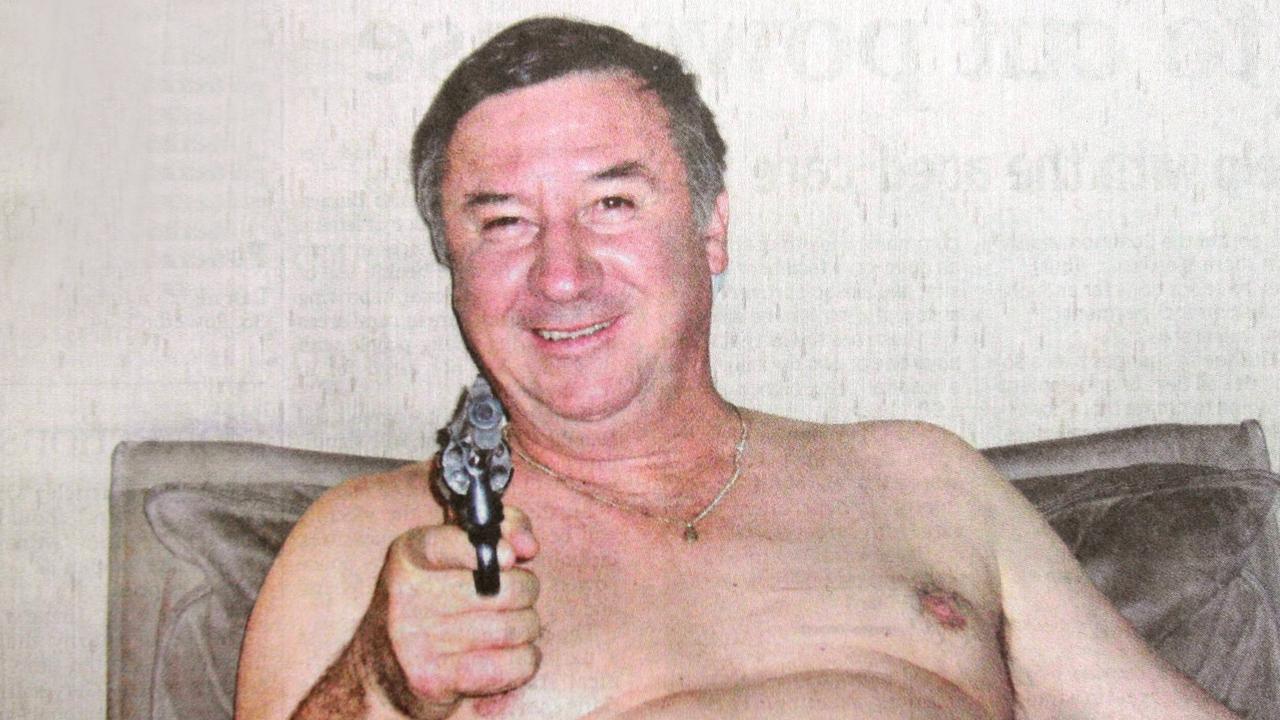
I knew right then that I had to have it. Flugge was the biggest name in the whole story and was soon to be called to give evidence at a corruption inquiry in Sydney.
I gave the woman $800 and published the photo on the front page of the newspaper the next day. It got everybody from the prime minister down talking and suddenly made a complex story appear more simple.
The photo and accompanying story I wrote helped define these wheat guys as a bunch of cavalier cowboys who had the blessing of the Australian Government to do whatever it took to clinch a deal.
I was only thinking about the scoop at the time, not about how it might affect Flugge.
All these years later, I’ve returned to this scandal to hear Flugge’s side of the story and explore how Australia goes about its dirty work on the world stage in my new podcast series Secrets We Keep: Baghdad Nights.
When I caught up with Flugge at his farm in WA, he told me that people still recognise him from that photo to this day.
“You go around through the grain belt, or in town with business people, ‘yeah, I know you, you’re the bloke with a gun,” he said.
Flugge’s wife Lyn said she instantly knew the photo would change her husband’s life.
“I just almost burst into tears because I thought, this is not going to go away. This is just going to keep cropping up for a long time ahead and as it has done so,” she said.
The publication of the photo caused Flugge to resign as director of Wesfarmers, the ASX-listed company that owned Bunnings and Coles at the time.
He also had to step down as chairman of Australian Wool Services and as a director of another listed company.
“It was disastrous … and within 24 hours basically everyone’s saying, ‘well, mate, you know, what are you going to do’? I had to resign from all those boards.”
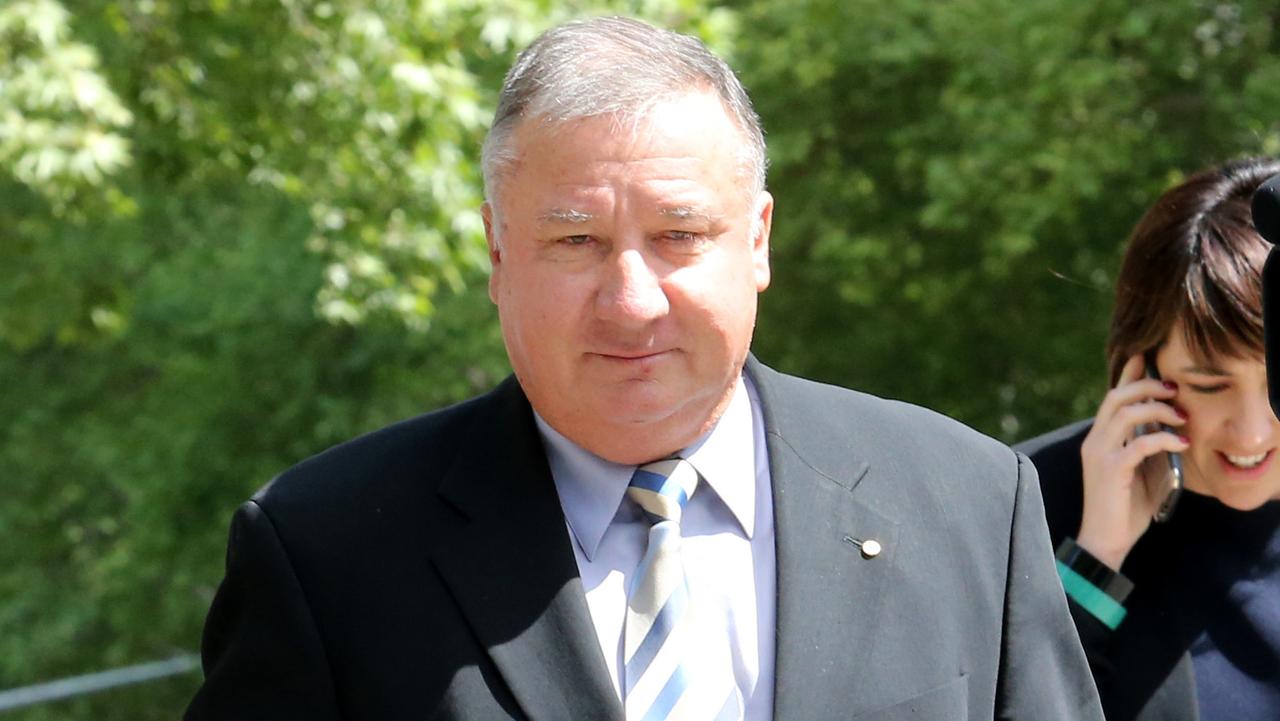
Flugge is still suspicious about how the photo found its way to me just before he was to give evidence at the inquiry into AWB’s Iraqi dealings. He believes it helped shape a narrative that he was a reckless character.
“And I know, Richard, you know, the photo came to you eventually or got there, but why and how it got there? That’s the interesting part,” he said.
“Was it just someone that thought, oh, I’ll make a couple of hundred dollars out of this? Or was it actually said, well, this will fit the scenario that we’re developing. I don’t know, but I’m pretty suspicious.”
The inquiry by former NSW Supreme Court Judge Terence Cole recommended Flugge and 11 other men associated with AWB be investigated for criminal offences.
A two-year federal police investigation ended with no one being charged with any criminal offences.
Flugge has always denied any wrongdoing in relation to AWB’s payment of extra trucking fees Alia, a Jordanian-registered company, or knowing that the money was ending up with Saddam Hussein’s regime.
He has not been charged with any criminal offences.
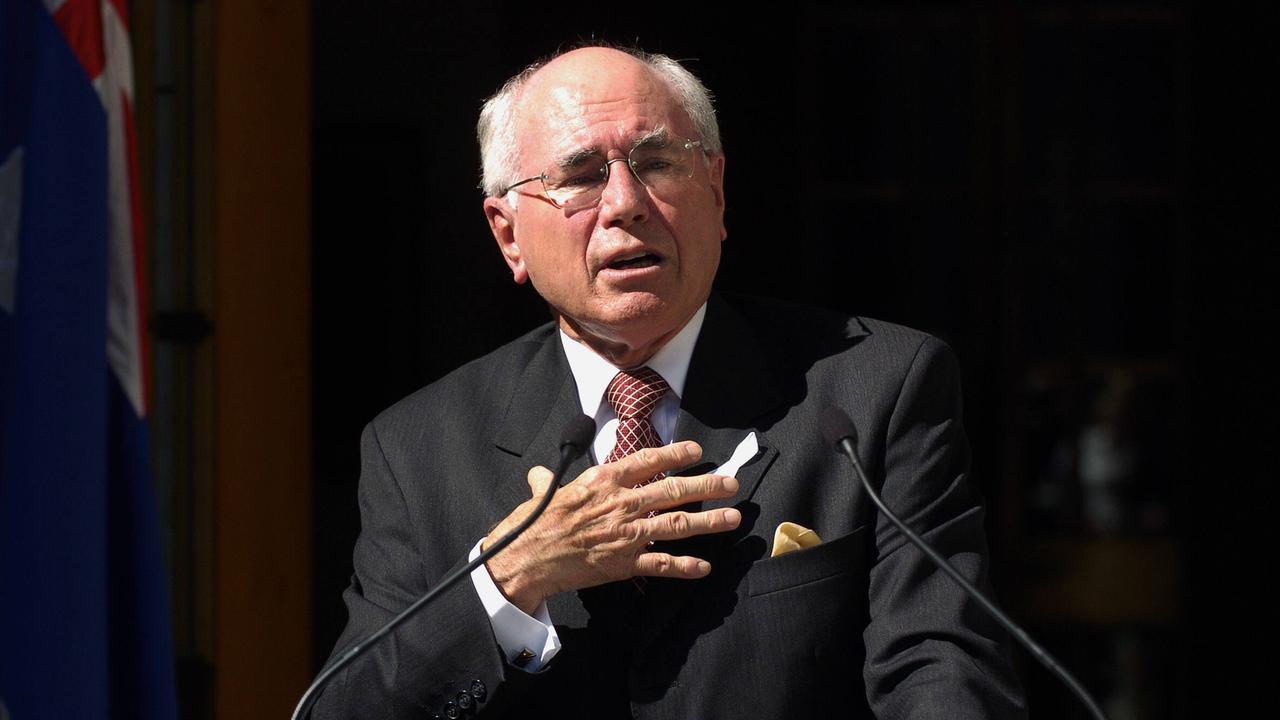
In 2016, a long-running civil case against Flugge by the Australian Securities and Investments Commission (ASIC) for breaches of his directors’ duties ended with the former AWB chairman found guilty of failing to ask enough questions about the payments.
Victorian Supreme Court Justice Ross Robson fined Flugge $50,000 and banned him from running a company for five years.
But Justice Robson found ASIC failed to make its case that Flugge had acted dishonestly. He ruled Flugge’s reputation for honesty remained untarnished and praised his service to Australian farmers and commerce.
In the podcast, Flugge said he accepted that he should have asked more questions about the transport fees but took comfort in the finding his integrity was intact.
“That’s the most important thing,” he said. “And the fact that I had to fork out 50 grand, well yeah, that’s my kick in the backside. I’ll take it.
“I mean no one likes it but the reality is, I think perhaps that was reasonable. If you’re a chairman or a head of a company, and it goes wrong or something goes wrong, you have to carry some responsibility.”
So what was happening when the photo of Flugge was taken in the Iraqi capital of Baghdad in 2003 shortly after Saddam Hussein’s defeat by American, British and Australian forces?
His AWB colleague, Michael Long, was the man who took the photo and he is another key character in the podcast series.
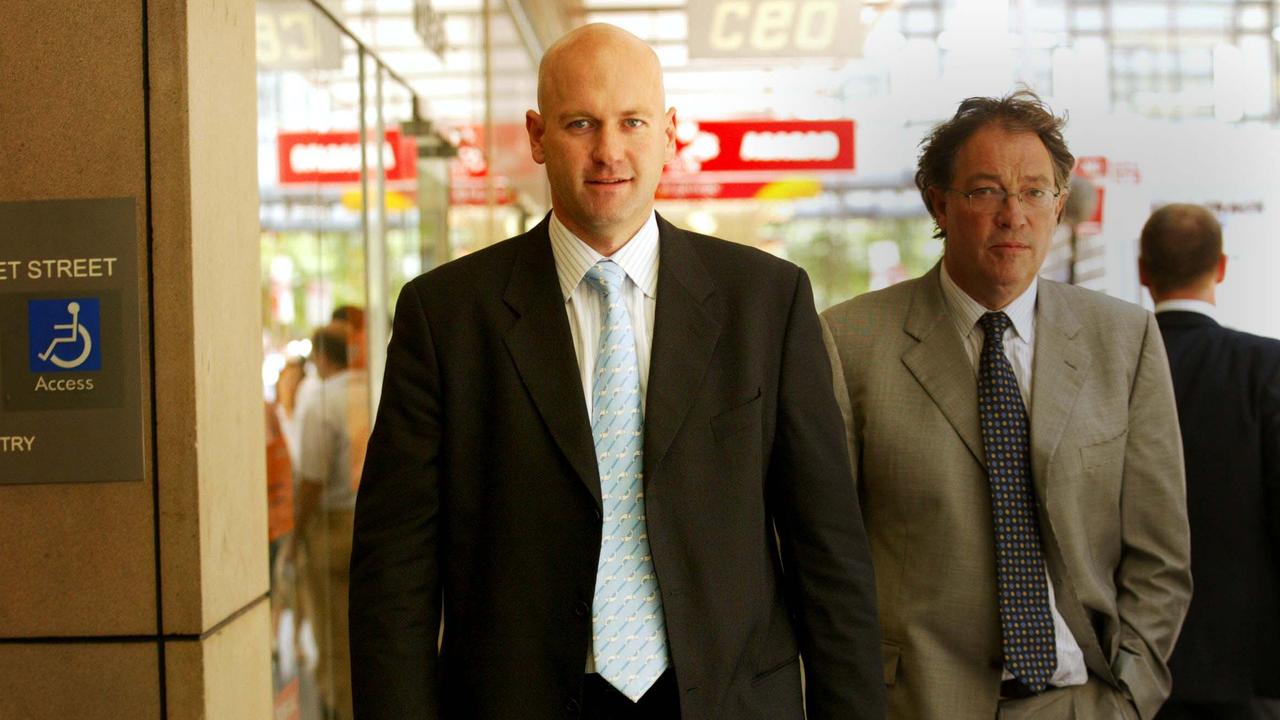
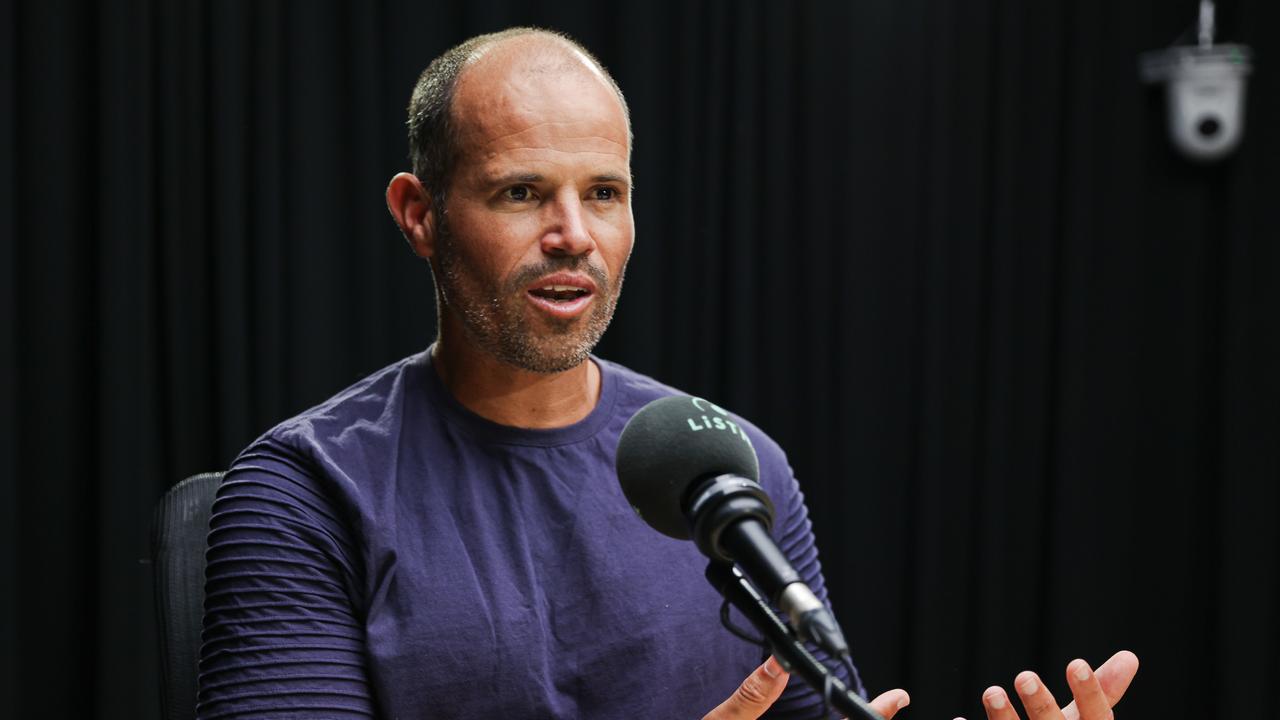
Like Flugge, Long had been embedded by the Howard government in the American-led Coalition Provisional Authority.
“The days were long. They were stressful. And we were living in the Al-Rashid Hotel,” Long told me.
“We had interconnecting rooms. So Trevor had a room. I had a room … and we typically just leave the doors open and wander through and chit chat at night time. And that particular night we had a few beers and I had the revolver that had been given to me by one of the senior American military officers.”
Flugge told me he and Long were joking around, with the tall and bald Long threatening to shave the former AWB chairman’s head. He said he picked up the revolver and pointed it at Long to get him to back off.
“We were joking around. It was obviously an empty gun. But yes, you never point a gun at someone, but it was pointed at me. I took a photo. The rest is history,” Long said.





